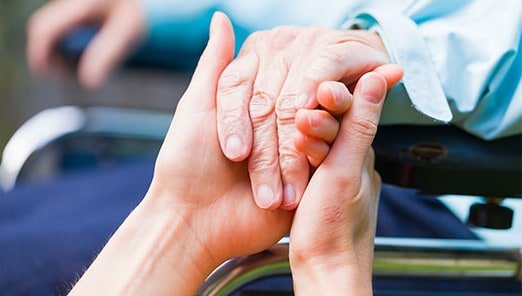With over 1 million orders

WISDOM FROM OTHERS LIVING WITH ARTHRITIS
Constant pain and stiffness of joints are regular symptoms of arthritis. Unfortunately, arthritis also comes with a whole slew mental health issues and takes a heavy toll on your emotional state; which means you’re also at a higher risk for depression, loneliness, and isolation.
While it may seem cheesy or trite, knowing that you’re not alone in this can go a long way. So we wanted to share insights collected from people who, like you, are trying to live a full life as they manage the disease. Hopefully, their collective wisdom helps you manage the challenges of arthritis and inspire you to overcome your own.
It’s important to be in control of your health—but being in control doesn’t mean you have to do it alone.
People who get diagnosed with arthritis, especially if they’re still relatively young, tend to assume that their life—as they know it—is now over.
Because arthritis prompts chronic pain, it’s easy to see why. When you have to deal with aching and inflamed joints, you can’t really do what you love anymore. And with some forms of arthritis it is not just your joints that get affected. As your condition progresses, it can also affect other organs too.
The disease, being more common among the elderly, also means it’s hard to find people who can relate to what you’re going through. Finding a support group who can share their own struggles and hearing about how they worked around it is encouraging and inspirational.
You’re stronger than you think—physically, mentally, and emotionally.
When you deal with debilitating pain every day, it’s hard to see past the daily struggle you’re going through. Accepting that your body is different though can help you overcome your limitations physically, mentally and emotionally.
There will be changes. If you were a triathlete or a serious adrenaline junkie before diagnosis, it probably won’t be a good idea to go back to this kind of lifestyle. But there are other things you can do in terms of activities, lifestyle, and diet to manage the effects of your symptoms.
Little by little, you’ll realize that your life now is different, but not necessarily bad—and you’ll be stronger for it.
Be patient—especially on yourself.
From the moment you get diagnosed, you have to wrap your head around the idea that you now have to deal with a disease that you will have to learn to manage for the rest of your life.
There will be good days, and there will be bad days. But even on the worst day, you have to take it easy on yourself. Things that were easy before will now be a challenge—simple things like eating or taking a shower. Be patient with yourself.
Bad days don’t necessarily mean a bad life.
There will be days where your condition takes the spotlight front and center. On these days, you’re constantly reminded of the things you used to do that you took for granted. Pain will be intolerable. And it really feels like you can’t do anything you used to love.
Remind yourself: it’s just a day. Tomorrow will be better.
Take stock of your life and things that you should continue to be grateful for. Arthritis may feel like it’s taking over your life, but there are things you can do to make sure it doesn’t.
Be your own advocate.
Don’t hide in the dark. Learn about your condition, find out everything you can about the disease. Talk to your doctors to assess how you can best reach your quality-of-life goals. Don’t beat yourself up if you suddenly have to use aids and tools (such as knee support or elbow support)to help manage your condition—these tools are simply part of the changes your life is going through and will help you maintain your independence as well as quality of life.
Don’t shut down on bad days—know that you have options. And most of all, remember that having and dealing with this disease doesn’t make you weaker—it makes you stronger for overcoming it.
